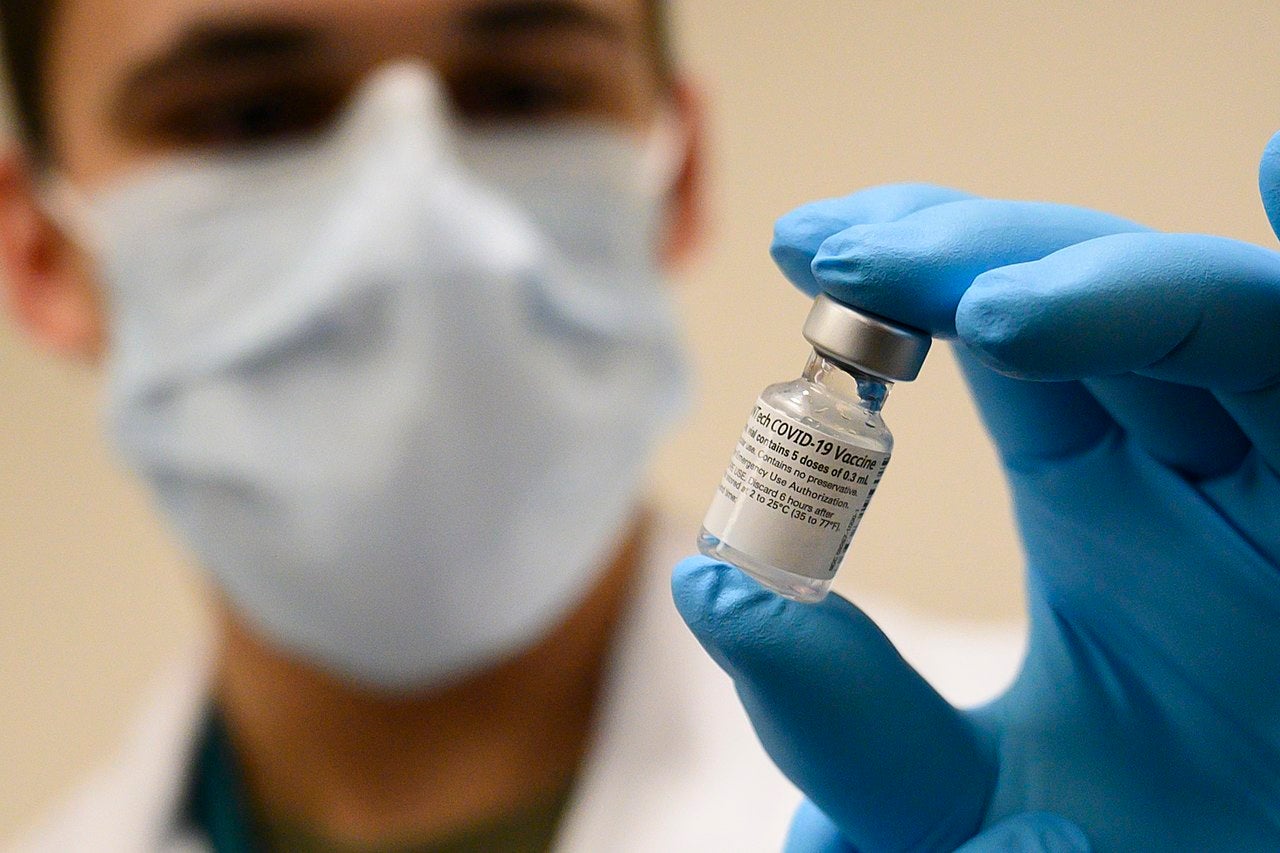Access to Affordable COVID-19 Vaccines: Need for Patent Obligation Relaxation
Amitendu Palit, Mekhla Jha
5 May 2021Summary
In order to overcome the acute shortage of vaccines and critical drugs to treat COVID-19 infections, global trade rules must ensure that patent rights do not obstruct the flow of desperately needed medicines. The proposal put forward by India and South Africa at the World Trade Organization demanding such flexibilities needs to be seriously considered.
Getting vaccines at affordable rates is one of the foremost challenges facing the world in its fight against the COVID-19 pandemic. The concern is higher for poor countries, including South Asia, which are critically dependent on other countries for vaccines.
In these times when infection rates are high, concerns of not having enough vaccines for inoculating populations are coming true. Unless global trade rules allow vaccines to move quickly from surplus to deficit locations, many countries, especially those in South Asia, will not be able to meet growing requirements. Only those countries that have entered into advanced vaccine purchase agreements with one or more producers are able to rapidly vaccinate their people. Pfizer, BioNTech, Moderna, AstraZeneca, Johnson & Johnson, Russian Direct Investment Fund (marketing Sputnik-V vaccine) and Sinovac are some of the major global pharmaceutical firms making vaccines. All of them have entered into purchase agreements with various country governments.
The World Trade Organization’s (WTO) Intellectual property (IP) rules governed by provisions under trade-related intellectual property rights (TRIPS) decisively impact the global movement of vaccines. Well before the vaccines became available for public use, India and South Africa had urged the WTO to relax TRIPS provisions safeguarding patent rights for cross-border flow of vaccines and other medical products necessary to fight COVID-19. The proposal was resisted at the meeting of the TRIPS Council of the WTO on 15 and 16 October 2020 by the United States (US), European Union (EU), United Kingdom (UK) and several other developed countries. The opposition was ostensibly due to insufficient evidence suggesting IP being a barrier to access to relevant medicines and technologies.
The WTO’s TRIPS provisions have always experienced tensions between countries owning large IP in health products and exporting these, vis-à-vis those lacking such IP and importing these products. The TRIPS rules have tried to resolve the conflict between interests of IP owners and global access to affordable medicines through the provision of licensing, and in public health emergencies (when licenses may not be easy to obtain), through compulsory licensing.
Global pharmaceutical firms invest heavily in research and development (R&D) to develop formulations and biological products like vaccines. The proprietary knowledge they gain as a result enables them to set prices for what they develop. The urge to recover the R&D costs and make profits is natural. However, the COVID-19 context needs to prioritise public health concerns over patent holder rights.
The submission by India and South Africa at the WTO had anticipated IP rights becoming a barrier to access to vaccines among developing countries, just as they had been for access to other medical products. At the heart of their proposal for the waiver of IP rules is also the argument that unrestricted global sharing of technology and know-how is the only way to control the virus globally.
Under the influence of domestic pharmaceutical companies, the US and other countries in the TRIPS Council meeting opposed India’s proposal. Except for a few producers from India and China, the largest global pharmaceutical companies and vaccine producers are from the US, the EU and the UK. Their business interests in making vaccines and supplying them the world over are understandable. The situation today, however, is completely different from what it was in October 2020 when the issue was discussed at the WTO.
Over the last couple of months, an unprecedented and unrestrained sweep of the pandemic in several large populous countries – India, Brazil, Turkey, Indonesia, Pakistan, Bangladesh, Poland and the Philippines – affecting billions and subjecting national healthcare systems to extreme stress, has galvanised the global community into action.
The Joe Biden Administration, keen on repositioning the US as the frontline state in addressing global public health and environment challenges, is taking a fresh view on augmenting global vaccine supplies through less restrictive patent enforcements. More flexible rules, while allowing countries to import vaccines easily, should also enable the issuance of quick issue of compulsory licenses for domestic production of patented vaccines and critical drugs to treat COVID patients like Remdesivir – as emphasised recently by the Supreme Court of India.
Given the severity of the COVID-19 pandemic, it is imperative that the proposal by India and South Africa of not insisting on patent obligations in cross-border trade of vaccines, and essential medicines and equipment, be effected at the earliest. Otherwise, for several countries, particularly those in South Asia, the human toll from the pandemic will be far larger than what is visualised.
. . . . .
Dr Amitendu Palit is a Senior Research Fellow and Research Lead (Trade and Economic Policy) at the Institute of South Asian Studies (ISAS), an autonomous research institute at the National University of Singapore (NUS). He can be contacted at isasap@nus.edu.sg. Ms Mekhla Jha is a student research assistant at ISAS. She can be contacted at Mekhla.jha@u.NUS.edu. The authors bear full responsibility for the facts cited and opinions expressed in this paper.
Photo credit: Wikipedia
-
 More From :
More From :
-
 Tags :
Tags :
-
 Download PDF
Download PDF



